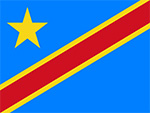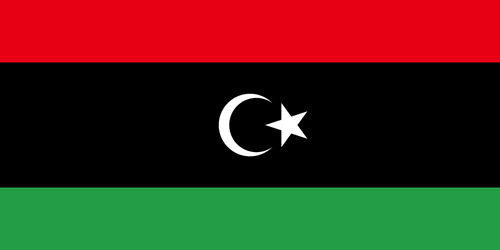To assess the progress of 1000 global companies on their impact toward SDG 6
World Benchmarking Alliance
(
Civil society organization
)
#SDGAction50584
Description
WBA measures and compares 1000 global companies across 22 industries on their impact towards achieving water-related goals. Companies are assessed on performance across their own operations and supply chains and specifically measure companies on their contribution to water quality, water withdrawal and water sanitation. The methodology acts as a roadmap, translating the water-related goals into clear expectations and guidance for companies and by sharing best practice. By assessing companies every two years progress is tracked, providing an accountability mechanism on how companies are contributing to the 2030 Agenda.
The water assessment is part of WBA’s wider Nature Benchmark Methodology, which measures the worlds most influential companies on their efforts to protect nature and biodiversity, aligning with the goals of the Global Biodiversity Framework. The methodology is built on existing standards and best practices, while also recognising developing concepts. It will be updated after each full benchmark cycle, to ensure the most up-to-date science and knowledge is reflected. Methodology development and review are built on an extensive consultation process, and guided by the Expert Review Committee, which is made up of members from WBCSD, SBTN, GRI, Capitals Coalition, WWF, Columbia Center on Sustainable Investment and TNFD.
In WBA’s 2022 assessment of 400 companies, there was more reporting on water relative to other more novel nature topics, however performance is still lacking and there is little evidence of a consistent and unified approach to water. For instance, companies are reporting against different metrics, leading to data being difficult to compare and only a number of them are setting time-based targets. In 2023 WBA will assess a further 400 companies and in 2024 the full 1000 will have been assessed for the first time.
There are increasing calls for improved transparency and accountability on corporate performance toward global agendas, such as the Kunming-Montreal Global Biodiversity Framework calling for large businesses to assess and disclose their risks, impacts and dependencies on nature, including water. Equally, companies are stepping up to lead on water stewardship. The UNGC’s CEO Water Mandate has over 200 companies pledging to reduce water stress by 2050, committing to action and transparency in their operations & supply chains, community engagement and calling for more ambition in public policy.
However, a mechanism is needed to sufficiently assess how private sector actions are contributing to achieving the water-related goals. Without comparable information, impact cannot be captured which contributes to a corporate accountability gap. As a result, the majority of companies avoid their responsibility and don’t take the urgent action that is needed. Equally, those that do live up to their responsibility are not rewarded accordingly.
WBA’s commitment to assess 1000 of the worlds most influential companies on a bi-annual basis helps close the corporate accountability gap. The benchmark assessments not only help individual companies identify where they need to take action, but provide evidence for other stakeholders in the ecosystem to find ways to be more effective in holding companies to account and encourage accelerated action on SDG implementation. Multilateral systems, which hold global agendas, have a key role to play and must create the pathways to credibly include corporate contributions into global stocktakes and allow for greater coherence in bringing together different stakeholders to discuss and take action on water challenges and the broader 2030 Agenda.
The 1000 companies are assessed on challenges that intersect with the other SDGs. WBA can share insights from its Nature Benchmark that speak to water challenges, but companies are assessed more broadly on climate, nature, social and governance topics, thus taking a systems lens.
WBA operates as a multistakeholder alliance of 350+ organisations aligned with our mission to drive company progress on the SDGs. We build upon and incorporate existing standards and frameworks in the methodologies we assess companies on, and continually update to include new concepts.
2022 Nature Benchmark Methodology: https://www.worldbenchmarkingalliance.org/publication/nature/methodolog…
Companies in scope: https://www.worldbenchmarkingalliance.org/publication/nature/companies/
SDGS & Targets
Goal 6
Ensure availability and sustainable management of water and sanitation for all
6.1
By 2030, achieve universal and equitable access to safe and affordable drinking water for all
6.1.1
Proportion of population using safely managed drinking water services
6.2
By 2030, achieve access to adequate and equitable sanitation and hygiene for all and end open defecation, paying special attention to the needs of women and girls and those in vulnerable situations
6.2.1
Proportion of population using (a) safely managed sanitation services and (b) a hand-washing facility with soap and water
6.3
By 2030, improve water quality by reducing pollution, eliminating dumping and minimizing release of hazardous chemicals and materials, halving the proportion of untreated wastewater and substantially increasing recycling and safe reuse globally
6.3.1
Proportion of domestic and industrial wastewater flows safely treated
6.3.2
Proportion of bodies of water with good ambient water quality
6.4
6.4.1
Change in water-use efficiency over time
6.4.2
Level of water stress: freshwater withdrawal as a proportion of available freshwater resources
6.5
By 2030, implement integrated water resources management at all levels, including through transboundary cooperation as appropriate
6.5.1
Degree of integrated water resources management
6.5.2
Proportion of transboundary basin area with an operational arrangement for water cooperation
6.6
6.6.1
Change in the extent of water-related ecosystems over time
6.a
6.a.1
Amount of water- and sanitation-related official development assistance that is part of a government-coordinated spending plan
6.b
Support and strengthen the participation of local communities in improving water and sanitation management
6.b.1
Proportion of local administrative units with established and operational policies and procedures for participation of local communities in water and sanitation management
Goal 17
Strengthen the means of implementation and revitalize the Global Partnership for Sustainable Development
17.1
Strengthen domestic resource mobilization, including through international support to developing countries, to improve domestic capacity for tax and other revenue collection
17.1.1
17.1.2
17.2
Developed countries to implement fully their official development assistance commitments, including the commitment by many developed countries to achieve the target of 0.7 per cent of ODA/GNI to developing countries and 0.15 to 0.20 per cent of ODA/GNI to least developed countries; ODA providers are encouraged to consider setting a target to provide at least 0.20 per cent of ODA/GNI to least developed countries
17.2.1
17.3
Mobilize additional financial resources for developing countries from multiple sources
17.3.1
Additional financial resources mobilized for developing countries from multiple sources
17.3.2
17.4
Assist developing countries in attaining long-term debt sustainability through coordinated policies aimed at fostering debt financing, debt relief and debt restructuring, as appropriate, and address the external debt of highly indebted poor countries to reduce debt distress
17.4.1
17.5
Adopt and implement investment promotion regimes for least developed countries
17.5.1
Number of countries that adopt and implement investment promotion regimes for developing countries, including the least developed countries
17.6
Enhance North-South, South-South and triangular regional and international cooperation on and access to science, technology and innovation and enhance knowledge sharing on mutually agreed terms, including through improved coordination among existing mechanisms, in particular at the United Nations level, and through a global technology facilitation mechanism
17.6.1
Fixed broadband subscriptions per 100 inhabitants, by speed
17.7
Promote the development, transfer, dissemination and diffusion of environmentally sound technologies to developing countries on favourable terms, including on concessional and preferential terms, as mutually agreed
17.7.1
Total amount of funding for developing countries to promote the development, transfer, dissemination and diffusion of environmentally sound technologies
17.8
Fully operationalize the technology bank and science, technology and innovation capacity-building mechanism for least developed countries by 2017 and enhance the use of enabling technology, in particular information and communications technology
17.8.1
17.9
Enhance international support for implementing effective and targeted capacity-building in developing countries to support national plans to implement all the Sustainable Development Goals, including through North-South, South-South and triangular cooperation
17.9.1
Dollar value of financial and technical assistance (including through North-South, South‑South and triangular cooperation) committed to developing countries
17.10
Promote a universal, rules-based, open, non-discriminatory and equitable multilateral trading system under the World Trade Organization, including through the conclusion of negotiations under its Doha Development Agenda
17.10.1
17.11
Significantly increase the exports of developing countries, in particular with a view to doubling the least developed countries’ share of global exports by 2020
17.11.1
Developing countries’ and least developed countries’ share of global exports
17.12
Realize timely implementation of duty-free and quota-free market access on a lasting basis for all least developed countries, consistent with World Trade Organization decisions, including by ensuring that preferential rules of origin applicable to imports from least developed countries are transparent and simple, and contribute to facilitating market access
17.12.1
Weighted average tariffs faced by developing countries, least developed countries and small island developing States
17.13
Enhance global macroeconomic stability, including through policy coordination and policy coherence
17.13.1
17.14
Enhance policy coherence for sustainable development
17.14.1
17.15
Respect each country’s policy space and leadership to establish and implement policies for poverty eradication and sustainable development
17.15.1
17.16
Enhance the Global Partnership for Sustainable Development, complemented by multi-stakeholder partnerships that mobilize and share knowledge, expertise, technology and financial resources, to support the achievement of the Sustainable Development Goals in all countries, in particular developing countries
17.16.1
Number of countries reporting progress in multi-stakeholder development effectiveness monitoring frameworks that support the achievement of the Sustainable Development Goals
17.17
Encourage and promote effective public, public-private and civil society partnerships, building on the experience and resourcing strategies of partnerships
17.17.1
Amount in United States dollars committed to public-private partnerships for infrastructure
17.18
By 2020, enhance capacity-building support to developing countries, including for least developed countries and small island developing States, to increase significantly the availability of high-quality, timely and reliable data disaggregated by income, gender, age, race, ethnicity, migratory status, disability, geographic location and other characteristics relevant in national contexts
17.18.1
Statistical capacity indicators
17.18.2
17.18.3
Number of countries with a national statistical plan that is fully funded and under implementation, by source of funding
17.19
By 2030, build on existing initiatives to develop measurements of progress on sustainable development that complement gross domestic product, and support statistical capacity-building in developing countries
17.19.1
17.19.2
Proportion of countries that (a) have conducted at least one population and housing census in the last 10 years; and (b) have achieved 100 per cent birth registration and 80 per cent death registration
SDG 14 targets covered
| Name | Description |
|---|
Deliverables & Timeline
Resources mobilized
Partnership Progress
Feedback
Action Network

Timeline
Entity
Region
- Global
Other beneficiaries
The benchmark data is freely available to everyone. Investors, governments, civil society, individuals and the companies themselves will be empowered. Investors can influence the companies they invest in; Governments can develop better policies; Civil society can direct public support and partnership efforts; Companies can use the methodology and scorecard as guidance.
More information
Countries




























































Contact Information
Charlotte, Global Engagement Lead

